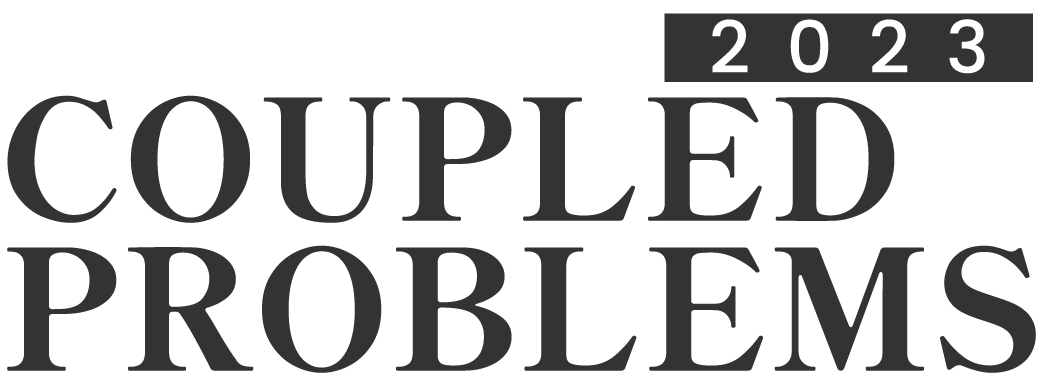

Non-Destructive Testing Using the Finite Cell Method
Please login to view abstract download link
Full Waveform Inversion (FWI) is a model-based inverse method for structural identification from measured wave signals, which has been applied very successfully for seismic exploration. Whereas it has proven particularly powerful for the reconstruction of smoothly varying material, the method is so far not fully suitable for the identification of large or even infinite contrast in the material parameters. This situation yet often appears in Non-Destructive Testing, where detecting Neumann boundaries, such as crack-like defects, internal voids, or hidden backsides of walls, can be the focus of interest. Inspired by the basic setup of the Finite Cell Method, we introduce a dimensionless scaling field, which characterizes the distribution of the material in space. Whereas this scaling is a simple binary point-membership function in the classical forward problem, defining for each point in space, if it is inside or outside the physical domain, this function itself is unknown in the inverse problem under consideration. In an adjoint optimization, the scaling field and wave equation are coupled with the goal of minimizing the residual between measured and simulated signals of the wave field. After describing the principles of this immersed boundary-based FWI, we will study different scaling options for the scalar as well as for the elastic wave equation. Finally, we will present various examples demonstrating the effectiveness of this coupled approach.

